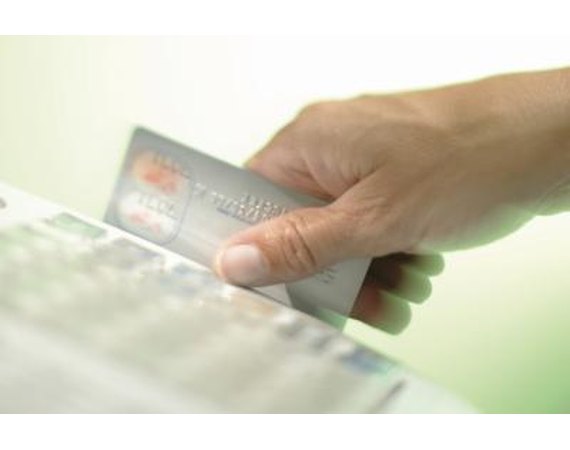
Canceling any credit card can have a negative impact on your credit score, indicates Dayana Yochim of The Motley Fool. However, canceling a newer card with a low credit limit may have less effect than canceling a card with significant usage history and a higher available credit limit.
Dilemma
It may seem unreasonable for someone to get a new credit card and immediately want to cancel it. However, credit card providers sometimes charge annual fees or other maintenance fees, especially for less active card holders. Not realizing this upon application and acceptance of the card, the card holder decides to cancel the card once the fees are discovered. Other times, card holders get a few new cards and decide they do not need them all. The trade off for canceling the card is a potential knock against credit scores.
Credit Score Basics
A number of factors are used to compute your individual credit score, which serves as a metric for lenders to determine your creditworthiness. Credit history, length of credit history, amounts used, types of credit and new credit are five main categories in the FICO credit scoring model designed by Fair Isaac Corp., according to MyFICO, the company's consumer education website. The FICO model provides the foundation for scores generated by Equifax, Experian and TransUnion, the three major reporting bureaus.
Cancellation Implications
When you apply for new credit, the lender typically submits a credit score inquiry to determine whether to issue credit and at what terms. This inquiry typically takes a few points off your credit score based on the new credit section. Once you receive the card, the amounts of credit used section, which accounts for 30 percent of your score, becomes important. Your available credit limit on the new card improves your debt utilization ratio, which compares your credit in use to your available credit. Canceling the card removes that available credit, so you are using a higher proportion of available credit simply because you now have less credit available to you.
Debt Utilization Effects
Low debt utilization is one of the most important factors in your credit score. Assume you get a new card with a $5,000 credit limit. The impact to your credit score with this card are less than with a more established card because of your minimal or zero usage. Eventually, your score improves because your debt utilization ratio falls due to the added credit available to you, assuming you don't charge a lot on the new card. Thus, canceling a new card does hinder your credit score, but not necessarily as much as canceling a card with longer history.












